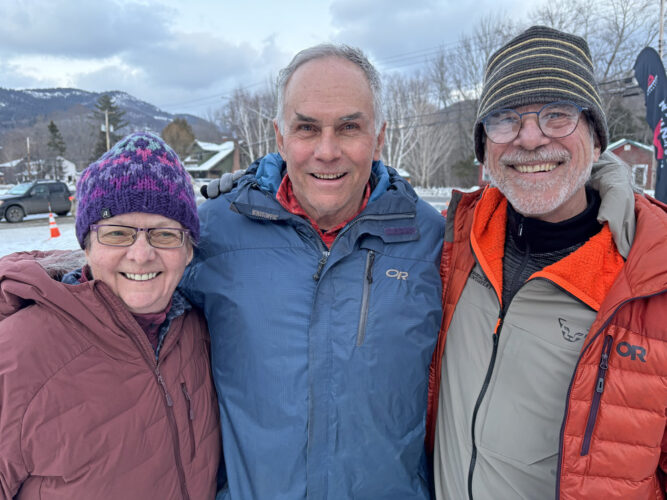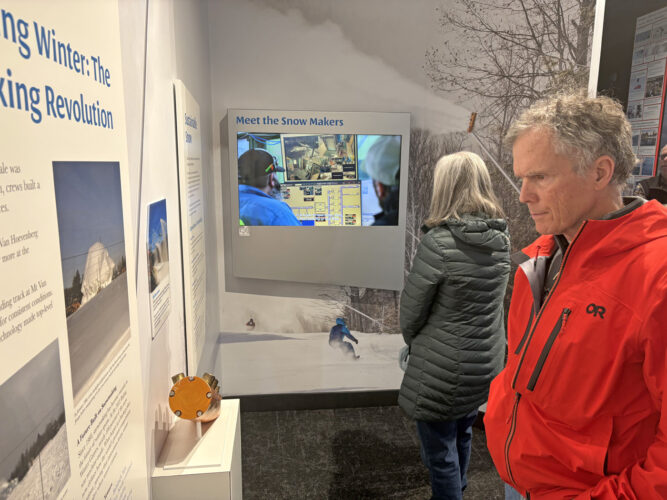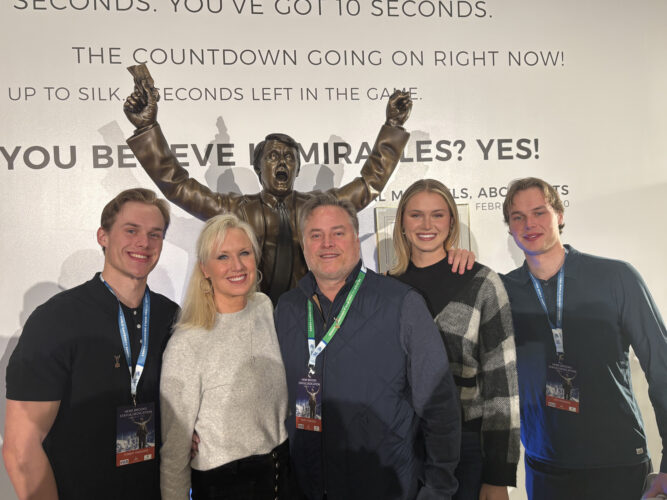ART MATTERS: What makes a place
As I left the Lake Placid Film Festival on Sunday, Nov. 2, I looked back at the Palace Theatre, the white marquee, the red lettering advertising the current showings, the glow of overhead lights. I was a little sad to say goodbye to the cinema, the event, and the town as I drove back to Montreal.
I love the venue and its red carpeting, pink tiles in the bathroom, well-stocked concession stand, and poster of John Wayne. A quick online search about the theater will tell you that it was built in 1926 and is one of the oldest operating movie theaters in the United States. At almost a hundred years old, and not at all showing her age, the building is a monument by every stretch of the imagination. It is also a personal monument for me.
I’ve brought my daughter every summer of her life to watch a movie at the Palace Theatre. We eat popcorn and candy and probably some leftover burrito I might have stashed in my tote. We sit at the very back, lean into each other and enjoy a perfect night at the movies.
–
Changing monuments
–
What is a monument? A broad definition is a statue, building, structure, or site that either commemorates a notable person or event, or that holds historical or cultural importance. For a more experiential definition, a monument is something that matters to people. The intricacies of the definition double when we investigate what matters to people, then multiply when we ask the question, who counts as people?
Nobody likes to see a personal monument torn down or replaced or left to decay. Part of the pain of losing a monument is that it feels as though we’ve lost part of ourselves along with it, and we have. We lose the chance to keep living with the personal monument, and we lose the hope that what matters to us has a future. Even more to the point, we lose the chance to believe that the things we love will remain the same. Change is scary because we have to change along with it, and we don’t know the outcome. We don’t know if we’ll like the change, if we’ll lose the person or the place we love in the process, or who we’ll be at the other end of the change, if we will be at all.
–
Ship of Theseus
–
The Ship of Theseus, an Ancient Greek paradox on identity and transformation, helped me gain perspective on how to think about and face change. The ship departs from Athens and sails to Delos across the Aegean Sea.
Along the way, the sailors replaced the decaying parts of the ship. One plank at a time, the ship was entirely replaced until no piece of the original ship remained upon arrival at its destination.
The question is, is it the same ship? In other words, what makes a thing or place what it is, or what makes you you, or, yet again, what makes your home your home?
One popular response to the Ship of Theseus is to say that identity is irreducible to the physical world, that it transcends materiality. The ship is more than its planks, you are more than the shape of your body, a home is more than the sum of its physical parts.
The paradox can also be seen as a story about the possibility of collaboration. I like to imagine the sailors talking to each other, choosing new planks to replace the decaying ones, lifting the planks together, straining to bevel them into place. I imagine them resolved to keep working on the ship, to build a better, stronger vessel, one that will complete its journey.
The ship matters not because of what it is, or was, or will be, but because people repeatedly choose to rebuild it. In this way, there is no essential identity to Theseus’s ship, nor to a place. A place is what we make it, and it is our choice to keep (re)making it.
I don’t want to see my personal monuments go, but I know I’ll lose some of them. Life and death, being and nothingness, planks are replaced again, and again, and again. The Ship of Theseus heartens me because it reminds me that we’re all sailing through space and time together, that even if we’re saddened or scared by some of the change, we can choose which plank we will use next to rebuild our ship, we can imagine a better one, collaborate, and create it.
If you’re interested in the philosophical side of life, please write to me with your questions and ideas.
Don’t know where to start? Try the reflection on this column or the prompt for the next column. Start thinking, start writing. I look forward to it.
Reflection on this column: Tell me about your personal monuments, old and new, and why they matter to you.
Prompt for the next column: If you had to choose one memory from your life to remember, what would it be, and why would you choose it?
(Jessica Lim can be reached at artmatters.jessicalim@gmail.com.)



